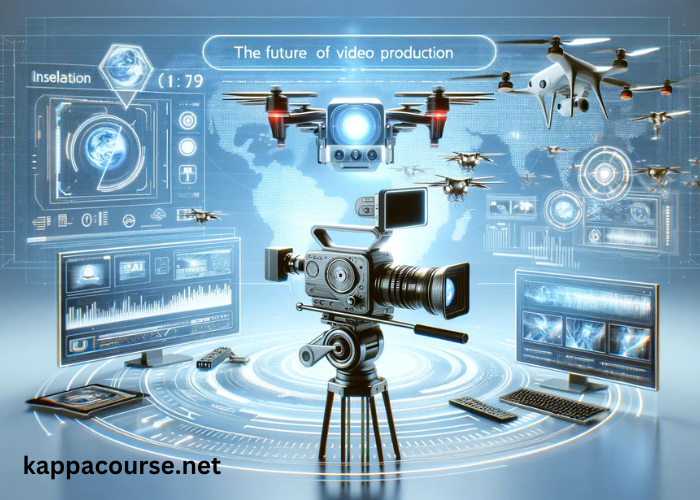Entertainment has always been an essential part of human existence. From the earliest forms of storytelling around the campfire to today’s virtual reality experiences, our quest for fun and amusement has driven innovation across millennia. This article explores the fascinating journey of entertainment, tracing its evolution from ancient pastimes to cutting-edge technological wonders.
The Dawn of Entertainment
Storytelling and Oral Traditions
Entertainment’s roots can be traced back to the very beginning of human civilization. Long before the advent of the written word, our ancestors gathered around fires to share stories, myths, and legends. These oral traditions served not only as a source of amusement but also as a means of passing down knowledge and cultural heritage.
The power of storytelling lay in its ability to transport listeners to different worlds, allowing them to escape the hardships of their daily lives. These tales, often accompanied by music and dance, fostered a sense of community and identity among early human societies.
Games and Sports
In parallel, games and sports have been a fundamental form of entertainment for millennia. Ancient civilizations like the Egyptians, Greeks, and Romans devised various games, some of which laid the foundation for modern sports. From chariot races to gladiator battles, these activities provided spectators with excitement and competition.
Moreover, board games such as Senet in ancient Egypt and Go in ancient China offered intellectual challenges, while games like chess, invented in India, combined strategy with leisure. These games not only entertained but also sharpened cognitive skills.
The Entertainment Renaissance
Theater and Literature
The Renaissance marked a significant turning point in the history of entertainment. The emergence of theater in the 16th century brought scripted storytelling to life on stage. Playwrights like William Shakespeare captivated audiences with timeless tales of love, ambition, and tragedy. The theater became a hub for communal experience, where people from all walks of life gathered to enjoy performances.
Simultaneously, the invention of the printing press by Johannes Gutenberg revolutionized literature. Books became more accessible, enabling the spread of knowledge and entertainment on a scale previously unimaginable. Novels, poetry, and essays offered readers an escape into the realms of imagination and intellect.
The Birth of Cinema
The late 19th century witnessed the birth of cinema, one of the most transformative innovations in the history of entertainment. Pioneers like the Lumière brothers and Georges Méliès captivated audiences with moving images. Silent films, accompanied by live music, opened a new dimension of storytelling.
The introduction of sound in the late 1920s added a new layer of immersion to cinema. Suddenly, characters had voices, and viewers could hear the world of the film come to life. The industry continued to evolve with the advent of color and special effects, ultimately leading to the creation of the blockbuster and the modern movie-going experience.
Television: The Home Entertainment Revolution
The mid-20th century brought another game-changing innovation: television. This invention fundamentally transformed how people consumed entertainment. Families gathered around the TV set to watch news, sports, sitcoms, and dramas. Television became a focal point in the home, shaping cultural norms and providing a shared experience.
The evolution of television continued with the introduction of cable and satellite TV, offering viewers access to an ever-expanding array of channels and content. VCRs and later, DVD players, allowed people to record and rewatch their favorite shows and movies, granting them more control over their entertainment choices.
The Digital Age: A Paradigm Shift
Video Games
The late 20th century saw the rise of video games, a form of entertainment that would go on to revolutionize the industry. Pong, released in 1972, is often considered the first commercially successful video game. Since then, the medium has evolved exponentially, moving from simple pixelated graphics to immersive 3D worlds.
Video games offer a unique form of entertainment by blending interactivity with storytelling. Players become protagonists in their own adventures, making choices that impact the game’s narrative. This level of engagement has cultivated a dedicated global community of gamers and transformed video games into a billion-dollar industry.
The Internet: A World of Possibilities
The advent of the internet in the late 20th century opened up new frontiers in entertainment. From the early days of dial-up connections to today’s high-speed broadband, the internet has enabled people to access a vast array of content from the comfort of their homes.
Streaming platforms like Netflix, Hulu, and Amazon Prime have disrupted traditional television, allowing viewers to binge-watch entire series at their own pace. YouTube has created a platform for content creators to share videos on virtually any topic, from educational content to comedy sketches.
Social media platforms like Facebook, Instagram, and Twitter have transformed how we interact with entertainment. We can follow our favorite celebrities, engage in discussions about the latest films or TV shows, and even participate in live-streamed events.
Virtual Reality (VR) and Augmented Reality (AR)
One of the most exciting innovations in entertainment is the emergence of virtual reality (VR) and augmented reality (AR). VR immerses users in entirely digital environments, while AR overlays digital content onto the real world. Both technologies have vast potential in gaming, education, and even workplace training.
For entertainment purposes, VR has created entirely new experiences. Users can visit virtual worlds, interact with characters, and participate in activities that were once purely the stuff of science fiction. AR, on the other hand, has brought interactive elements into our everyday lives, enhancing experiences like gaming and navigation.
The Future of Entertainment
As we look to the future, entertainment is poised for even more innovation. Here are some trends and technologies likely to shape the next era of fun and amusement:
Artificial Intelligence (AI) and Machine Learning
AI and machine learning are already impacting the entertainment industry. Recommendation algorithms on streaming platforms suggest content tailored to individual preferences. In gaming, AI can create dynamic, responsive worlds that adapt to the player’s actions. As these technologies advance, we can expect even more personalized and immersive experiences.
5G Connectivity
The rollout of 5G networks promises to revolutionize how we consume entertainment. With faster and more reliable connections, we’ll see greater use of augmented reality, virtual reality, and cloud gaming. This technology could make high-quality, low-latency gaming and streaming accessible to a broader audience.
Extended Reality (XR)
Extended Reality (XR) is an umbrella term that encompasses virtual reality (VR), augmented reality (AR), and mixed reality (MR). As XR technologies become more sophisticated and affordable, they will continue to merge the digital and physical worlds, offering entirely new entertainment experiences.
Interactive Storytelling
Interactive storytelling, popularized by video games, is likely to become more prevalent in other forms of entertainment. Interactive movies and TV shows, where viewers make choices that affect the plot, could become a mainstream genre. This blurs the line between passive consumption and active participation.
Sustainability in Entertainment
As environmental concerns grow, the entertainment industry will likely make efforts to become more sustainable. From eco-friendly film production to energy-efficient gaming consoles, the push for sustainability will shape how entertainment is created and consumed.
Artificial Creativity
Advances in AI are enabling machines to create music, art, and literature. In the future, we may see AI-generated content become a regular part of our entertainment landscape, challenging our notions of creativity and authorship.
Conclusion
The evolution of entertainment from ancient oral traditions to the digital wonders of today is a testament to human creativity.



